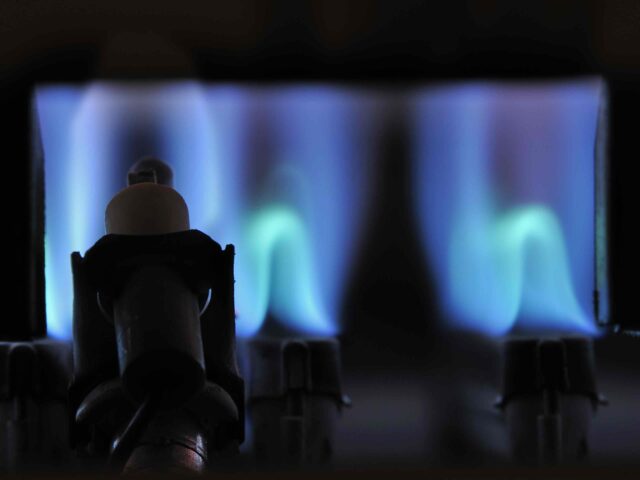The California Air Resources Board (CARB) voted unanimously last week to pass a plan to ban natural gas heaters and furnaces by 2030, ostensibly to reduce smog to meet federal ozone standards, and to lower greenhouse gas emissions.
The plan, which was adopted unanimously by the board, raises questions about how the state’s power grid will handle new demand from electric space heaters in the winter. California homes are generally less insulated than homes in states with colder climates, meaning that the use of space heaters is popular when temperatures dip at night in winter months. The interior regions of the state, which are poorer than the coastal regions of the state, would be more affected by the new standard.
The plan states that CARB will achieve its goal through “meaningful engagement” with residents on heaters and furnaces:
Through meaningful engagement with communities and the process outlined below, CARB would adopt a statewide zero-emission standard which would have criteria pollutant benefits as a key result along with GHG reductions. Beginning in 2030, 100 percent of sales of new space heaters and water heaters would need to comply with the emission standard. CARB would design any such standard in collaboration with energy and building code regulators, and with air districts, to ensure it was consistent with all state and local efforts, and would work carefully with communities to consider any housing cost or affordability impacts, recognizing that reducing emissions from space and water heaters can generate health benefits and cost-savings with properly designed standards. CARB understands that this measure needs to be part of a suite of equity-promoting and complementary building decarbonization policies deeply informed by public process that include scaling back natural gas infrastructure, expanding construction of zero-emission buildings, and building a sustainable market by increasing affordability and accessibility through expanding incentive programs, ensuring utility rates are supportive of electrification, developing the workforce, and increasing consumer education.
…
This measure would not mandate retrofits in existing buildings, but some buildings would require retrofits to be able to use the new technology that this measure would require. Beginning in 2030, 100 percent of new space and water heaters (for either new construction or replacement of burned-out equipment in existing buildings) sold in California would need to meet the zero-emission standard. It is expected that this regulation would rely heavily on heat pump technologies currently being sold to electrify new and existing homes. In addition to the development process for the Proposed 2022 State SIP Strategy, the measure as proposed by staff or adopted by the Board will be subject to a full public process.
The idea that electric heaters would be “zero emissions” does not take into account how electricity is generated. Currently, renewable energy sources account for about one-third of California’s power supply; natural gas accounts for 40%.
The Hill adds: “California’s Public Utilities Commission also eliminated subsidies for new natural gas hookups last week, marking the first state to do so.” While touted as a way to lower emissions and reduce utility bills, the fundamental question of how to heat homes and provide fuel for cooking remains an open one in a state that has struggled to provide electricity to residents in periods of high demand.
Separately, Gov. Gavin Newsom (D) signed 40 separate climate bills earlier this month.
Joel B. Pollak is Senior Editor-at-Large at Breitbart News and the host of Breitbart News Sunday on Sirius XM Patriot on Sunday evenings from 7 p.m. to 10 p.m. ET (4 p.m. to 7 p.m. PT). He is the author of the recent e-book, Neither Free nor Fair: The 2020 U.S. Presidential Election. His recent book, RED NOVEMBER, tells the story of the 2020 Democratic presidential primary from a conservative perspective. He is a winner of the 2018 Robert Novak Journalism Alumni Fellowship. Follow him on Twitter at @joelpollak.

COMMENTS
Please let us know if you're having issues with commenting.